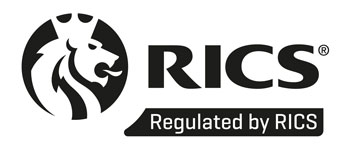Jargon Buster
terminology explained
Ensuring that our clients understand what they read here is of paramount importance to us. Below is a list of technical terms with a corresponding definition.
Collective Enfranchisement
The right of a group of 50% or more of Leaseholders in a particular block of flats to buy the freehold of the building from their Landlord.
Counter-notice
The Landlord’s response to the initial Notice of Claim served by the Leaseholder in a lease extension, or the participating Leaseholders in a collective enfranchisement.
Deed of Variation
When the time comes to complete the paperwork to extend a lease, the Deed of Variation is the legal document which will allow the Leaseholder to make changes without signing a whole new lease.
Flying Freehold
An expression applied to a property which is not vertically divided (e.g. a flat or a maisonette) which is held as an independant freehold. Such properties are fairly rare and generally considered unsatisfactory by mortgage lenders due to the difficulty of enforcing covenants.
Freehold Property
The absolute ownership of a property, defined as the highest form of property tenure offered in English law.
Ground Rent
Ground Rent is a payment made by a leaseholder to the freeholder of the property. It is for the right to use the land on which the property is built. Ground rent is typically paid annually, but it can be paid more or less frequently depending on the terms of the lease.
Hope Value
This is a payable by the Leaseholder(s) when they are buying the freehold of their property. It is extra value attributable to an interest under the freehold where there is a likelihood of being able to negotiate a lease extension in the future. For example, the participating Leaseholders in a collective enfranchisement would pay a ‘hope value’ for the non-participating flats, on the basis that they may profit in the future from granting lease extensions.
Leaseback
An arrangement whereby the Landlord sells his his interest subject to a new lease of 999 years at a peppercorn rent to him/herself in respect of part or all of the property. A peppercorn rent means that they will not have to pay any money.
Leasehold Property
Ownership of leasehold property means that the Leaseholder has a right to use and enjoy that property for a defined period of time, for example 99 years, 125 years or 999 years.
Long Lease
In general, a lease granted for a term certain of more than 21 years.
Marriage Value
For a lease extension, the value of the Leaseholder’s interest increases when he/she buys a new lease while the value of the Landlord’s interest falls. However, there will often be an overall increase in the total value of the two interests. The difference between the total value of the interests before and after lease renewal is the marriage value.
Notice of Claim (Initial Notice)
The notice served by the Leaseholder on the Landlord under Section 13 of the 1993 Act, the service of which formally commences the enfranchisement process.
Qualifying Tenant
A Leaseholder who fulfils the qualifying criteria, that is, a Leaseholder of a flat under a long lease who does not own three or more flats in the building.
Right To Manage (RTM)
The right of Leaseholders within a block to take control of the management of the building. A Right to Manage company in which each participating Leaseholder is a member must be formed.
Service Charge
A fee paid by leaseholders to cover the costs of maintaining and managing the property and its communal areas. This can include things like cleaning, repairs, maintenance of lifts and other amenities, and insurance. Service charges are typically paid monthly or quarterly.



